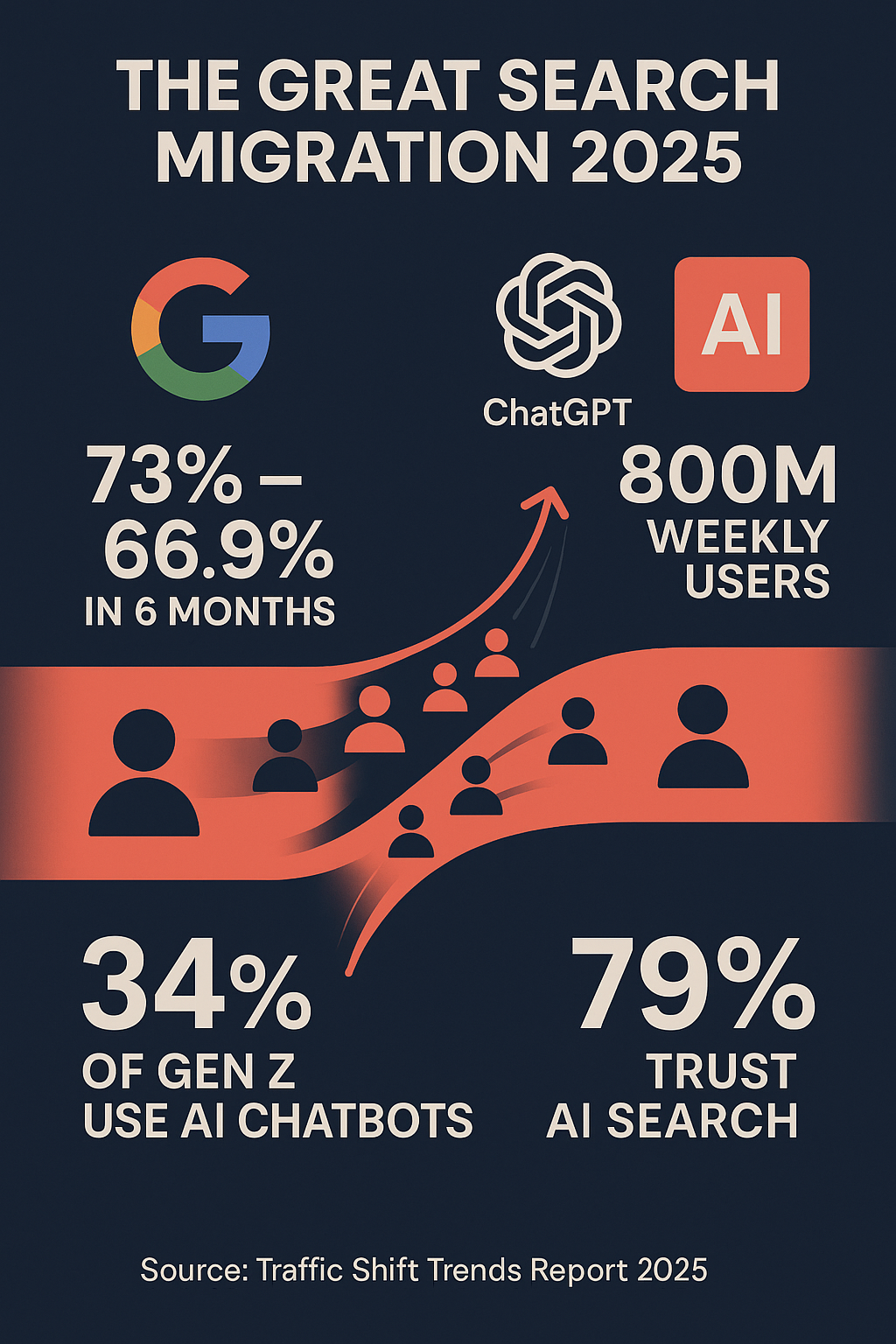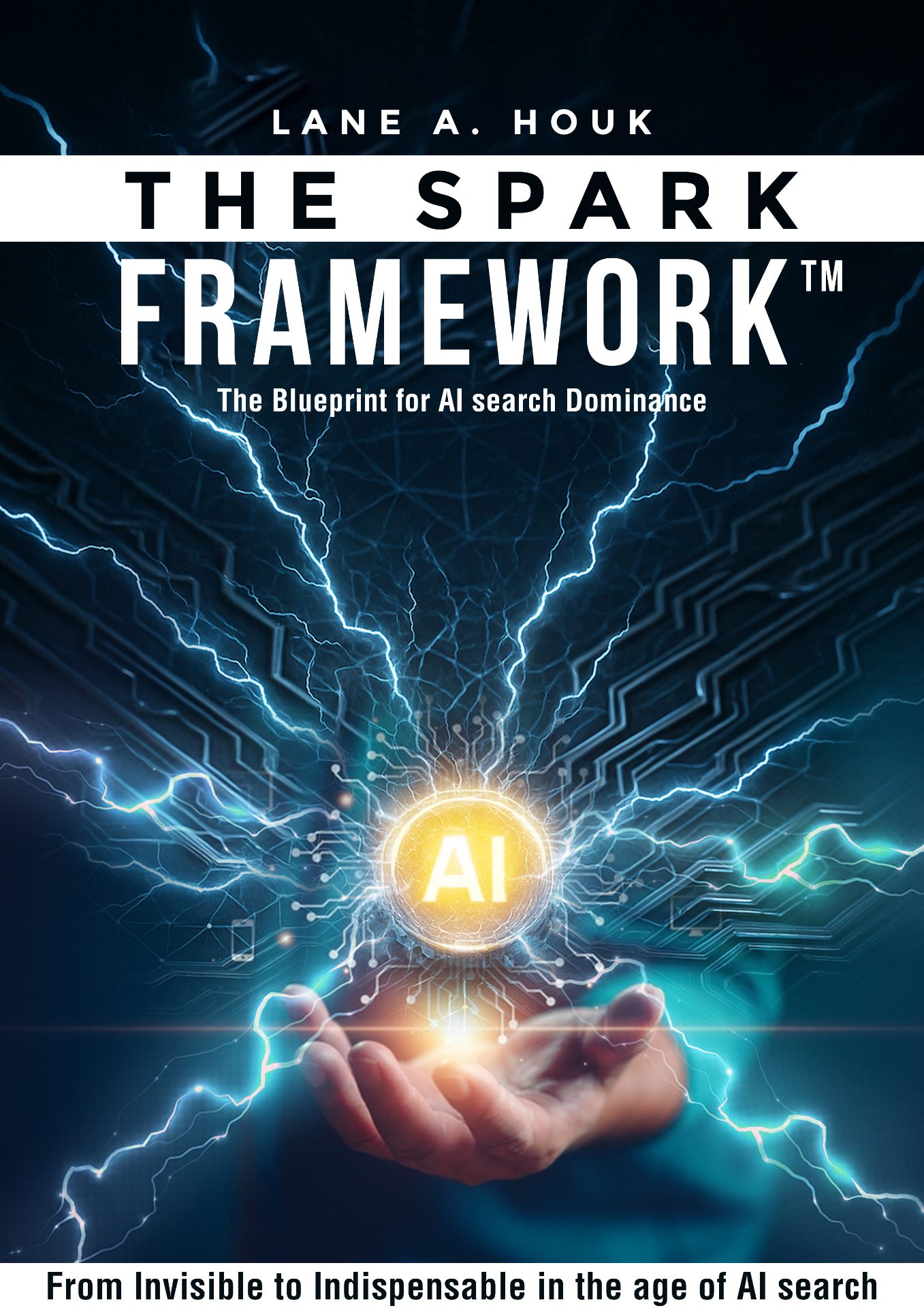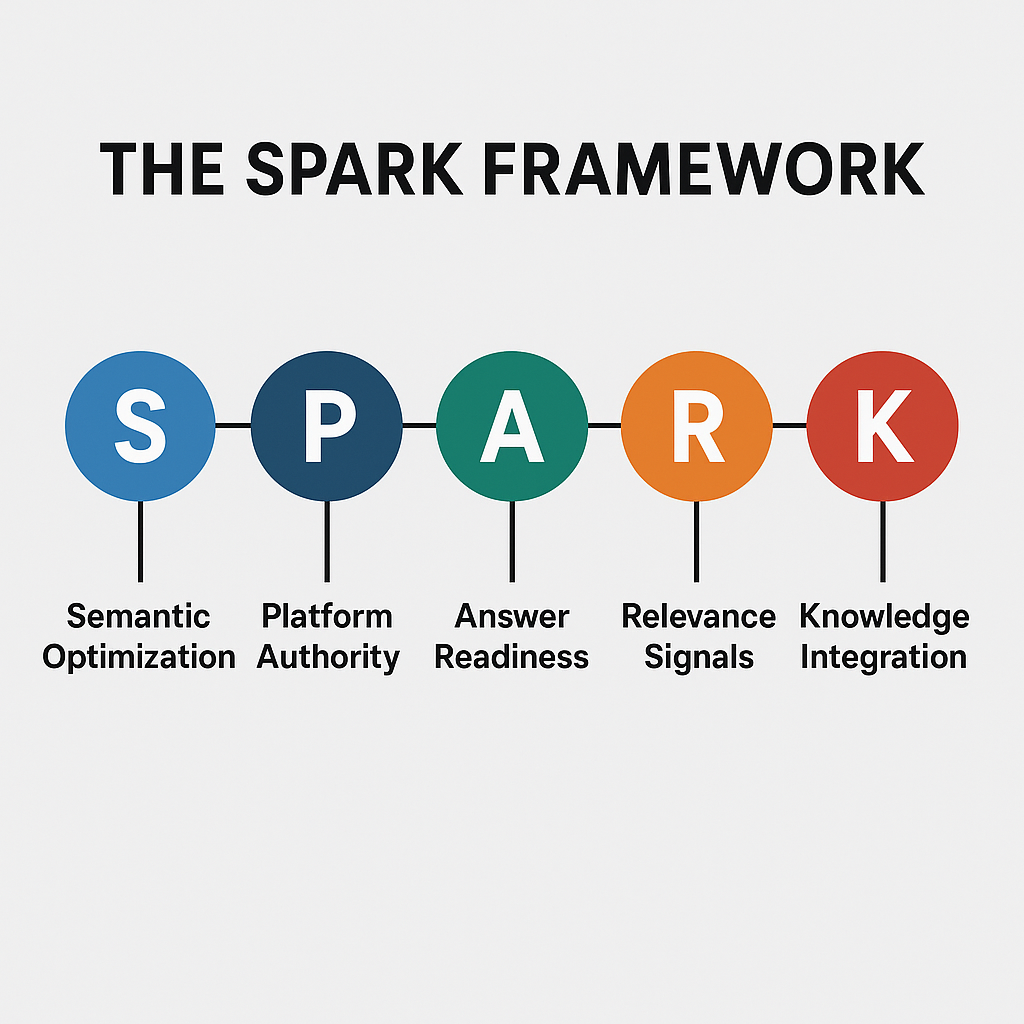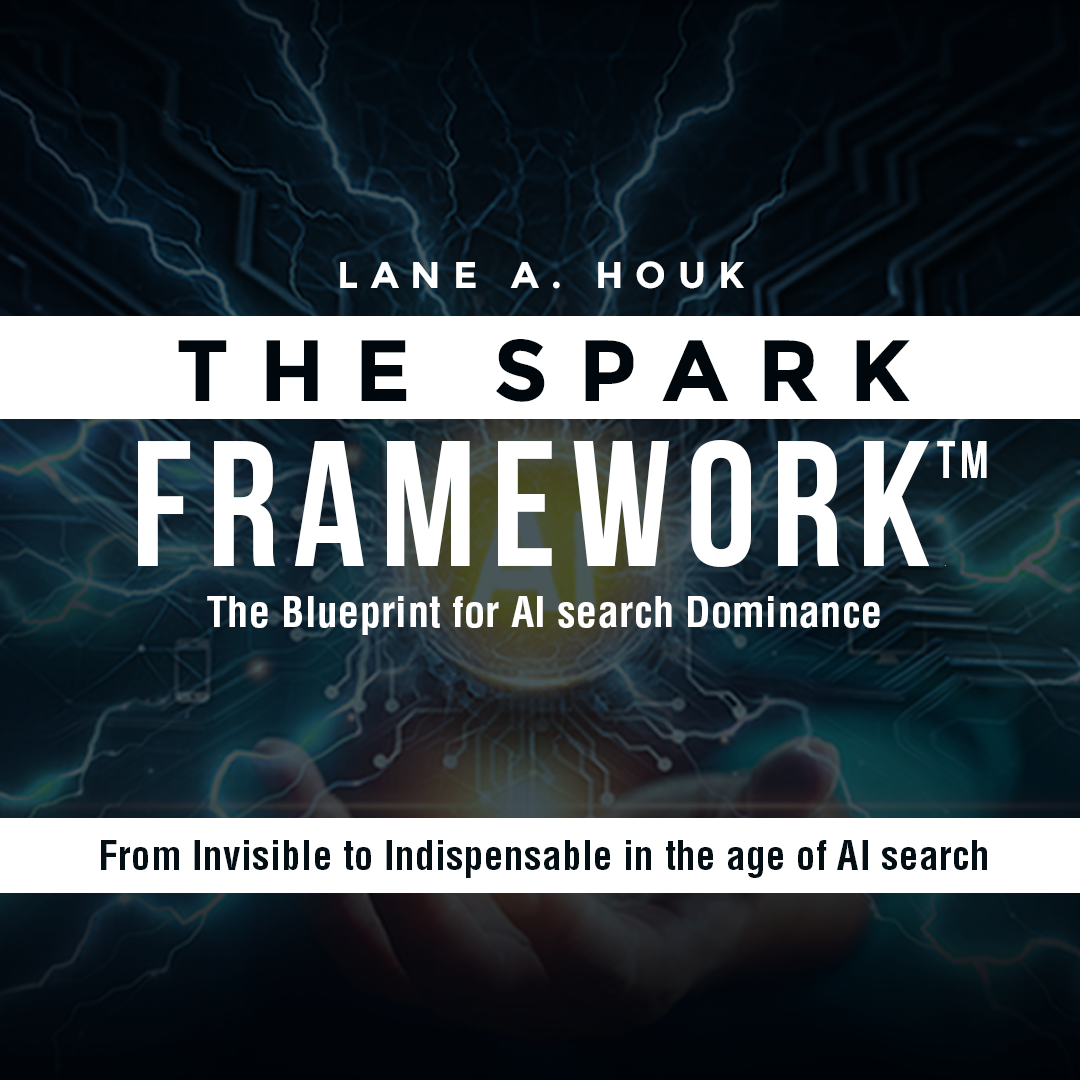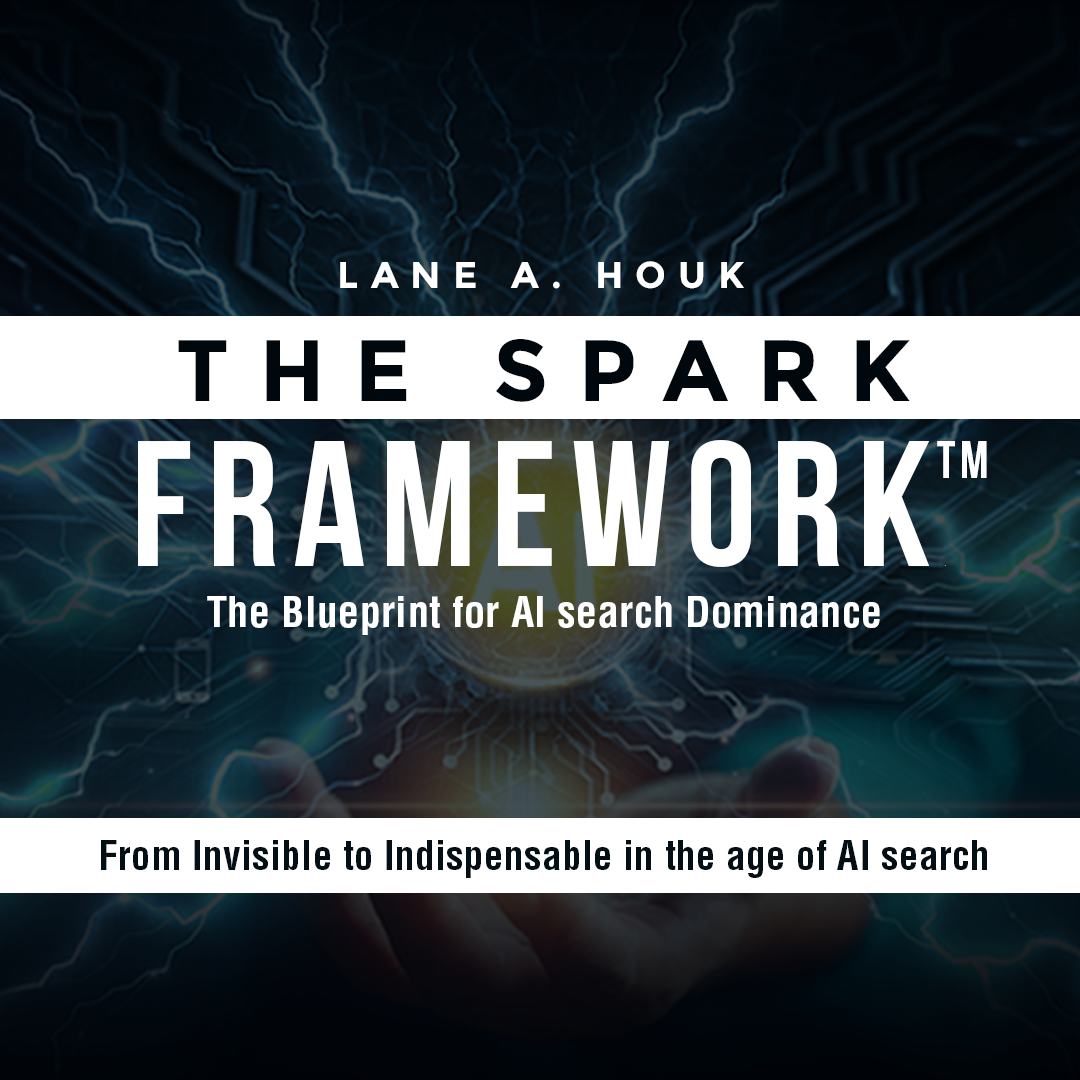While most businesses scramble to understand why their website traffic is mysteriously declining, a new book reveals the uncomfortable truth: traditional search engine usage is dying, and most companies are completely unprepared for what's replacing it.
The SPARK Framework: The Blueprint for AI Search Dominance addresses the new discipline of Answer Engine Optimization. In his new book, Lane Houk exposes a seismic shift happening right now in digital visibility—one that threatens to make two-thirds of businesses effectively invisible to the 800 million people using AI assistants like ChatGPT, Perplexity, and Google's AI Overviews every single week. "I've spent 15 years helping businesses get found online," says Lane Houk. "But in the past 24 months, I've watched the entire playbook become obsolete. Companies investing millions in traditional SEO are optimizing for a platform that's hemorrhaging users at the fastest rate in internet history." The Numbers Don't Lie: Traditional Search Is Collapsing Faster Than Anyone Predicted
The data is startling. According to newly released research compiled in the book: - ChatGPT exploded from 400 million to 800 million weekly users in just eight months—a 100% increase that shows no signs of slowing
- Google's general search market share plummeted from 73% to 66.9% between February and August 2025—the steepest six-month decline in the company's history
- 43% of all searches now start with AI assistants instead of traditional search engines
- 34% of Gen Z users prefer AI chatbots over Google for information discovery
- 79% of Americans trust AI search engines to provide accurate information
"This isn't a trend. This is a complete transformation of how humans find information," Lane explains. "And here's the terrifying part: most businesses have no idea it's happening until their traffic falls off a cliff."
Why Your SEO Strategy Is Making You Invisible to 800 Million Weekly Users
Traditional SEO focused on one goal: ranking in Google's top 10 results. But AI assistants don't show rankings—they cite sources. And if your business isn't structured to be cited by AI, you simply don't exist to these 800 million weekly users.
"I'm watching companies with perfect Google rankings get zero mentions in AI responses," Lane reveals. "They're spending $5,000-50,000 a month on SEO and wondering why their leads are drying up. The answer? They're visible to a shrinking audience and invisible to a growing one."
The book introduces Answer Engine Optimization (AEO)—a completely new discipline that focuses on making businesses citable by AI assistants rather than merely rankable by search engines. AEO combines advanced traditional SEO strategies with new tactics that specifically address LLM visibility. The 12-Month Implementation System That's Already Generating 150-300% Traffic Increases
Unlike theoretical frameworks, The SPARK Framework provides a month-by-month implementation guide that businesses can execute immediately. The system is already producing dramatic results for early adopters:
- 150-300% traffic increases from AI-driven search
- 50-100+ AI citations per month across ChatGPT, Perplexity, and Google AI Overviews
- 300-500% ROI on AEO implementation compared to traditional SEO alone
- 12-18 month competitive advantages over businesses still focused solely on traditional search
"We're seeing companies that implement this framework gain advantages their competitors simply can't catch up to," Lane notes. "By the time most businesses realize they need AEO, the early movers will have built 18 months of authority that can't be replicated overnight."
What Makes The SPARK Framework™ Different: Actionable Tasks, Not Vague Theory
The book breaks down into 12 monthly implementation phases, each with specific, actionable tasks:
- Month 1: Emergency protocol and foundation setup
- Month 2: Semantic optimization and entity mapping
- Month 3: Platform authority building across AI ecosystems
- Month 4: Answer readiness implementation
- Months 5-12: Advanced technical optimization, content scaling, competitive intelligence, and future-proofing
Each month includes detailed task lists, technical tutorials, recommended tools, and clear success metrics—turning abstract concepts into concrete action plans. "I didn't write a book about AI search theory," Lane emphasizes. "I wrote an operations manual. Every task is specific. Every recommendation is tested. Every strategy is proven."
The Early-Mover Advantage Window Is Closing Fast
Perhaps the most urgent message in the book: the window for early-mover advantage is measured in months, not years.
"AI assistants build authority based on consistent citations over time," Lane explains. "If your competitor gets cited 100 times over the next six months while you're 'studying' AEO, they've built an authority gap you can't close quickly. AI doesn't forget who the established experts are."
The book reveals that businesses implementing AEO now are gaining 12-18 month leads over competitors—leads that compound as AI assistants continue to cite established authorities more frequently than newcomers.
Who Needs This Book (And Who's Already Too Late)
The SPARK Framework is designed for:
- Business owners watching traffic decline without understanding why
- Marketing directors tasked with "figuring out this AI thing"
- SEO professionals realizing their skills need urgent updating
- Agency owners looking to add high-value AEO services
- Home services businesses competing in local markets where AI search is exploding
"If you're waiting for AI search to 'mature' before you act, you're already behind," Lane warns. "The businesses thriving in 2026 won't be the ones with the biggest budgets. They'll be the ones who moved in 2025."
About the Author
Lane Houk is the Founder & CEO of Franchise AiQ™ and Quantum Agency, a white label digital agency, with 15 years of experience in digital marketing and search optimization. Having guided thousands of businesses through major algorithm changes, mobile-first indexing, and voice search optimization, Lane recognized the AI search shift as the most significant transformation in digital visibility since Google's founding. Lane is also the Founder and former CEO of the SEO software, Signal Genesys. Lane exited Signal Genesys is 2024 with the acquisition by Search Atlas Group.
The research compiled in The SPARK Framework draws from analysis of over 10,000 AI search queries, interviews with early AEO adopters, and proprietary data on AI citation patterns across ChatGPT, Perplexity, and Google's AI Overviews.
